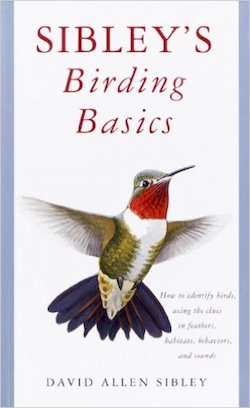Birders, heed David Sibley‘s improbable advice about how to identify rare birds:
If you think that you, of all people, have found a rare bird, ask yourself the following questions:
- Is this identification correct?
- Can you think of even one explanation that works as well or better to explain what you have seen?
- Do the marks you have seen really unquestionably lead to the identification as a rare species?
- Are you being ruthlessly honest with yourself, or could you be suffering from wishful thinking?
 That advice appears in the book Sibley’s Birding Basics. It paraphrases, specifically, the Improbable Research Teachers’ Guide that appears in every issue of the Annals of Improbable Research:
That advice appears in the book Sibley’s Birding Basics. It paraphrases, specifically, the Improbable Research Teachers’ Guide that appears in every issue of the Annals of Improbable Research:
Improbable Research Teachers’ Guide
Three out of five teachers agree: curiosity is a dangerous thing, especially in students. If you are one of the other two teachers, AIR and mini-AIR can be powerful tools. Choose your favorite hAIR-raising article and give copies to your students. The approach is simple. The scientist thinks that he (or she, or whatever), of all people, has discovered something about how the universe behaves. So:
- Is this scientist right — and what does “right” mean, anyway?
- Can you think of even one different explanation that works as well or better?
- Did the test really, really, truly, unquestionably, completely test what the author thought she (or he) was testing?
- Is the scientist ruthlessly honest with himself (or herself) about how well his (etc.) idea explains everything, or could he (etc.) be suffering from wishful thinking?
- Some people might say this is foolish. Should you take their word for it?
- Other people might say this is absolutely correct and important. Should you take their word for it?
Kids are naturally good scientists. Help them stay that way.
